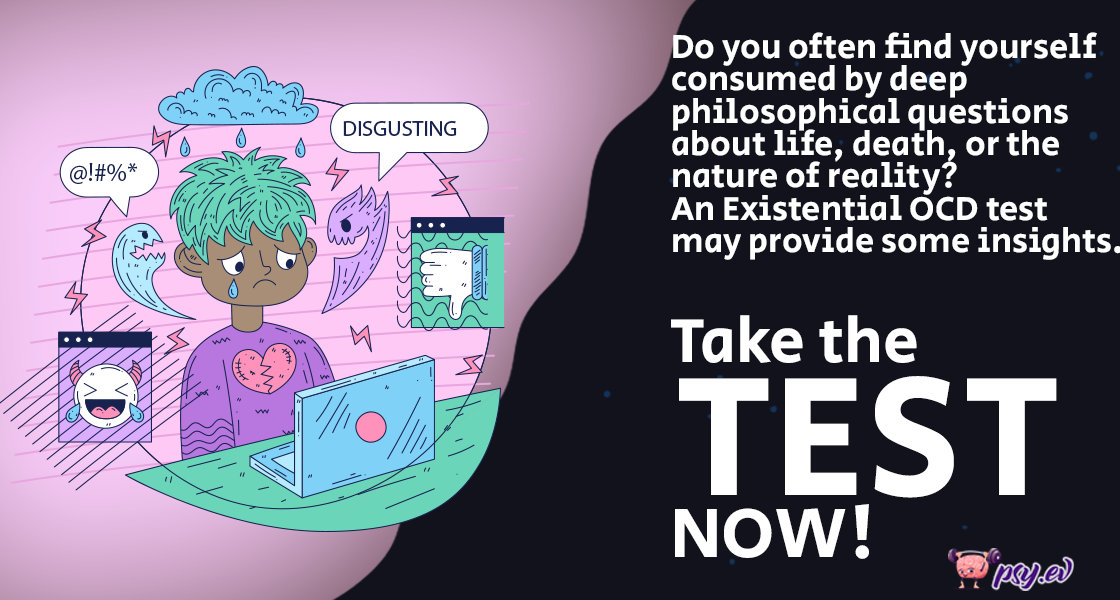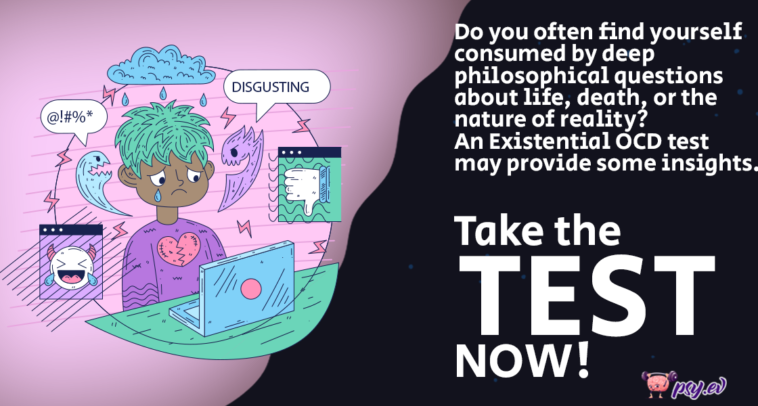The questions listed below are intended for persons who have anxiety-provoking thoughts or recurrent actions that feel uncontrolled. Acknowledging that existential OCD is a problem that has to be solved is the first step in dealing with it. Once someone can accept this, a trained counselor or therapist may provide them with the required assistance and support.
We have created a testing tool that is completely free here if you believe you may have this type of OCD. You can use the existential OCD test to evaluate your mental well-being and better understand your OCD symptoms. You may use this to start the process of overcoming existential OCD.
Existential OCD Signs and Causes
Existential OCD is characterized by persistent intrusive thoughts and compulsive actions linked to an obsession with existential questions. Anyone can be intrigued about the nature of reality, but for those with existential OCD, these questions tend to cause them severe anxiety rather than wonder or interest.
People with existential OCD behave differently from others. We also know that individuals with existential OCD cannot communicate properly. A person's anxiety may make it difficult to focus at work, have trouble sleeping, or stop them from feeling connected to their loved ones.
A person may spend the entire night looking up information about existence. Even though they know they should go to bed, they still believe they are close to getting the answer they need.
Other signs include the never-ending cycle of unwanted ideas and feeling unsettled or scared. The person frequently engages in obsessive behaviors to get respite from the discomfort these concerns bring.
The issues raised by existential OCD-related thoughts may include the meaning of life, how to distinguish between what is real and what is not, the reason for existing, and the concepts and concerns regarding a different world.
Additionally. the individual would need to create rituals or routines to cope with the anxiety and eliminate these queries while coping with such intrusive thoughts. It can take hours and hours to drive this internal debate.
These questions might make it difficult for the patient to discover the answers they want without becoming mired in worry and anxiety. Other features include the inability to regulate one's thoughts and the process of thinking being automatic.
What to Do?
Existential OCD may be mistaken for depression since it frequently consists of a review of one’s life and purpose. It is important to seek help for your symptoms. The next step is to search for a professional therapist who meets your requirements.
After selecting the therapist, they will decide on different therapies to help you. Exposure and response prevention (ERP) therapy is the most effective course of treatment for existential OCD.
Your urge to engage the compulsions grows stronger if you keep reaching out for them. However, when you restrain yourself from acting on your compulsions, you teach yourself a different way to react and are highly likely to observe a substantial decrease in your anxiety.
Your obsessions and compulsions are addressed by ERP using a focused approach. An ERP-trained therapist may assist you by assessing which ideas or situations are giving you the most anxiety, and they can then work with you to develop a unique treatment strategy to reduce those feelings through progressive, controlled exposure.


